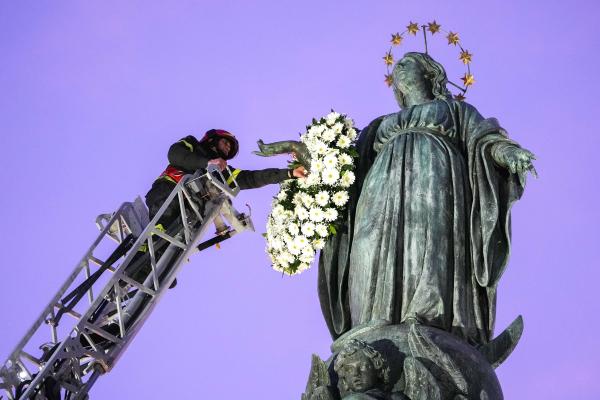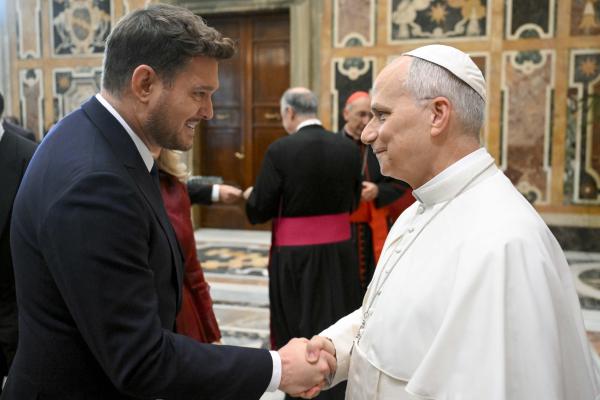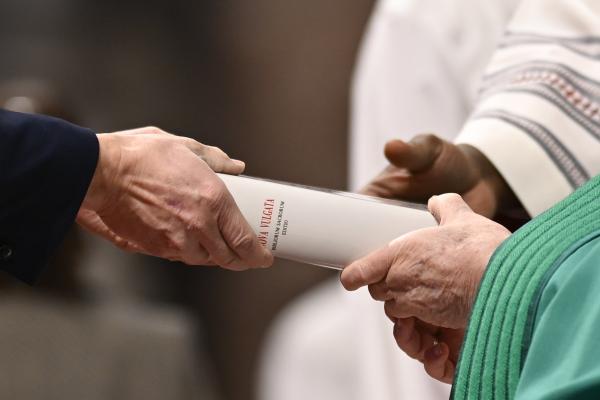Wrath destroys relationships, pins blame on others, pope says
Continuing a series of general audience talks about vices and virtues, Pope Francis reflected on the "dark" vice of wrath, which can pervade one's thoughts and cloud all reasoning.
 Carol Glatz
Carol Glatz
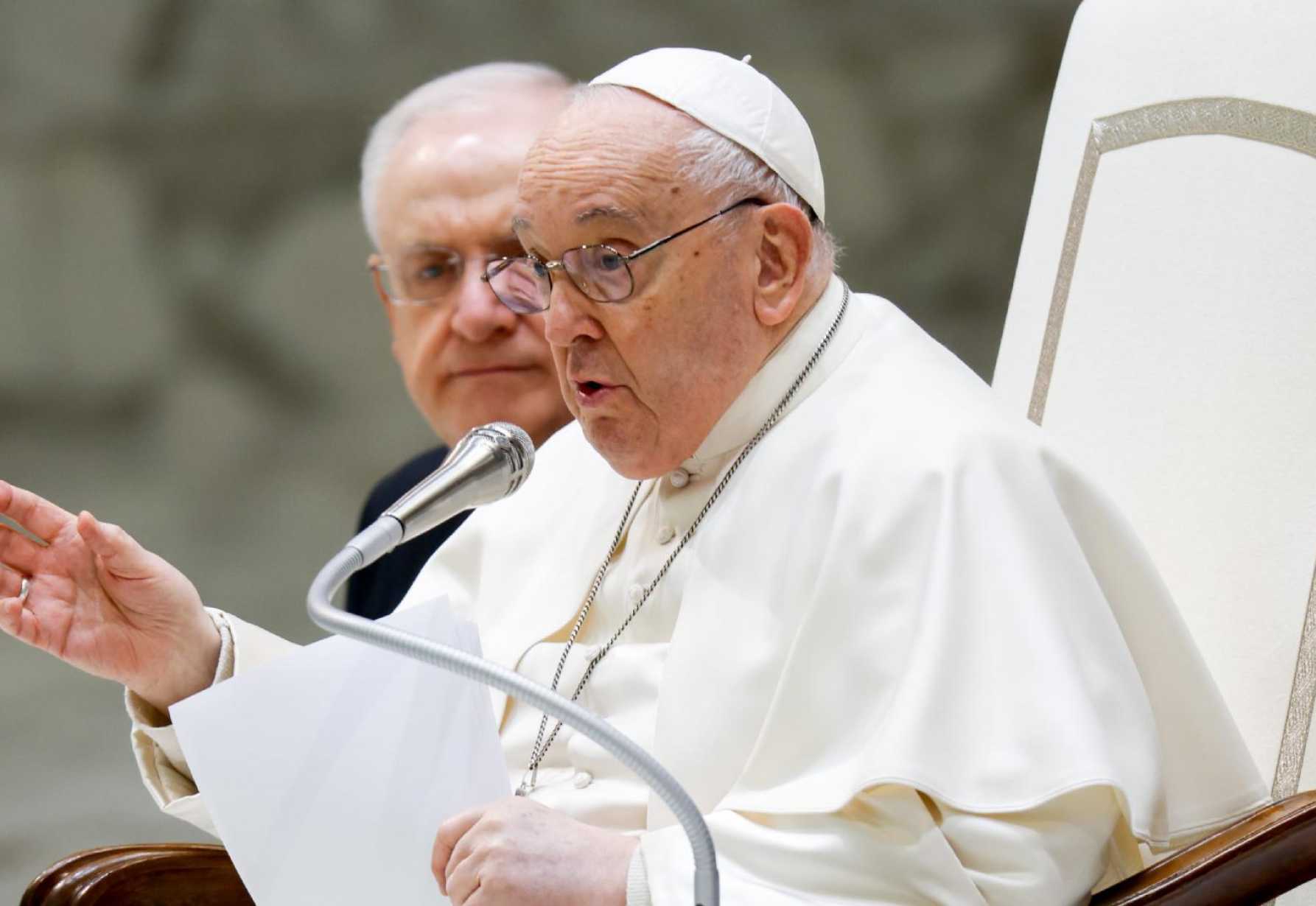
Pope Francis talks to visitors during his weekly general audience in the Paul VI Audience Hall at the Vatican Jan. 31, 2024. (CNS photo/Lola Gomez)
VATICAN CITY (CNS) -- Wrath is a "dark vice" that destroys relationships, focuses all blame on others and only worsens over time, Pope Francis said.
"It is capable of depriving us of sleep, of barring the way to reason and thought" because wrath completely clouds thinking clearly and builds up incessantly without mercy, the pope said Jan. 31 at his weekly general audience in the Paul VI Audience Hall.
Continuing a series of audience talks about vices and virtues, the pope reflected on the vice of wrath.
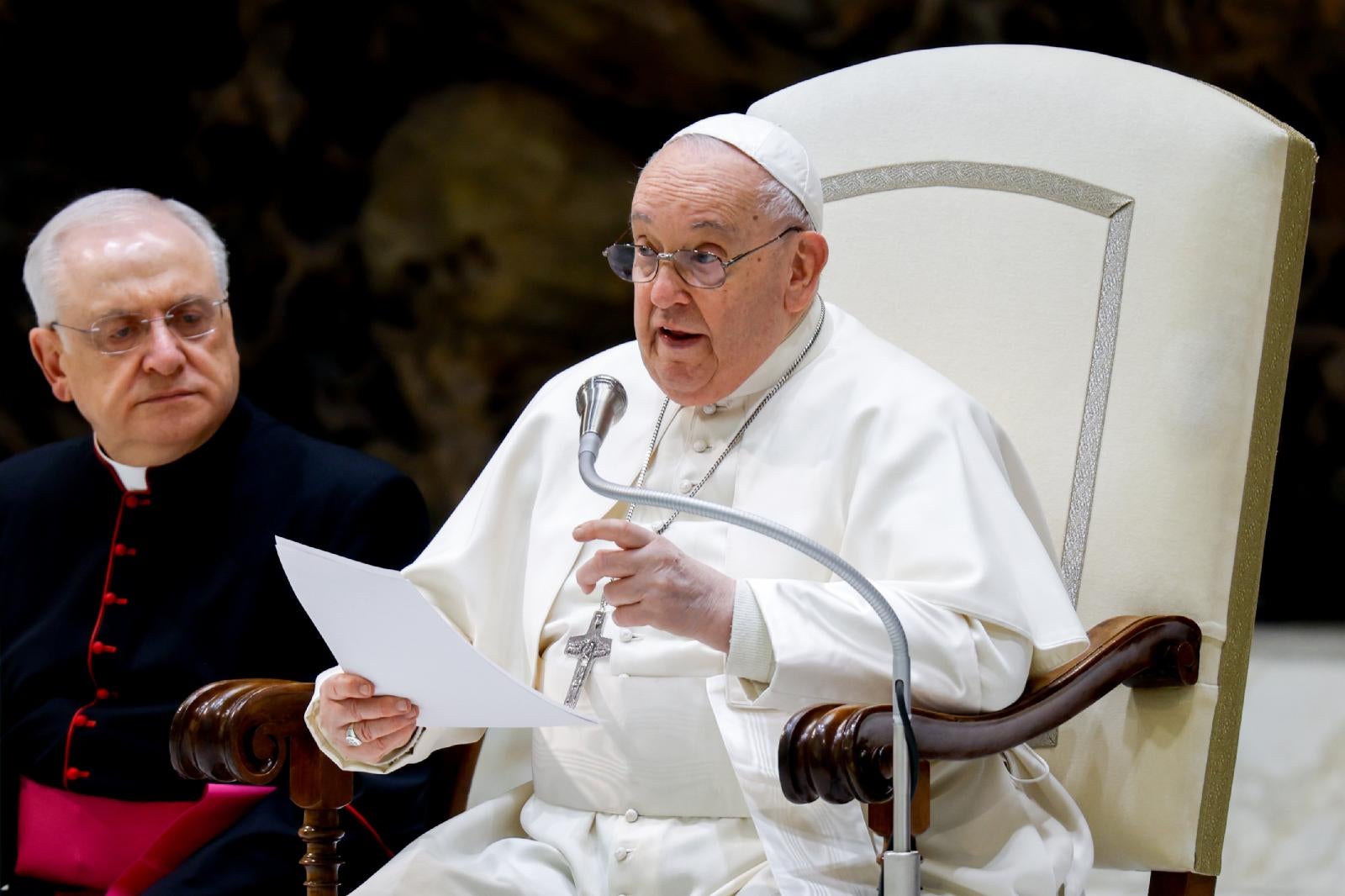
"If it is born of an injustice suffered or believed to be suffered, often it is unleashed not against the offender, but against the first unfortunate victim," he said, giving as an example people who can "withhold their rage in the workplace," but then unleash it at home on their spouse and children.
Wrath "destroys human relationships. It expresses the incapacity to accept the diversity of others, especially when their life choices diverge from our own," he said.
When someone is dominated by wrath, the pope said, "they always, always say the problem is the other person; they are unable to recognize their own defects, their own shortcomings."
St. Paul recommends Christians face up to the problem right away and attempt reconciliation before the end of the day, the pope said, quoting the apostle's Letter to the Ephesians (4:26) "Do not let the sun set on your anger."
"The night cannot be handed over to the devil," the pope said, repeating that it is important that any misunderstandings be handled before the day is over since this vice can keep people "awake at night, brooding over our reasons and the unaccountable mistakes that are never ours and always the other's."
"In the Lord's Prayer, Jesus makes us pray for our human relations, which are a minefield: a plane that is never in perfect equilibrium," he said.
"We are all sinners, all of us," with outstanding debts or "trespasses" committed and experienced throughout life, he said.
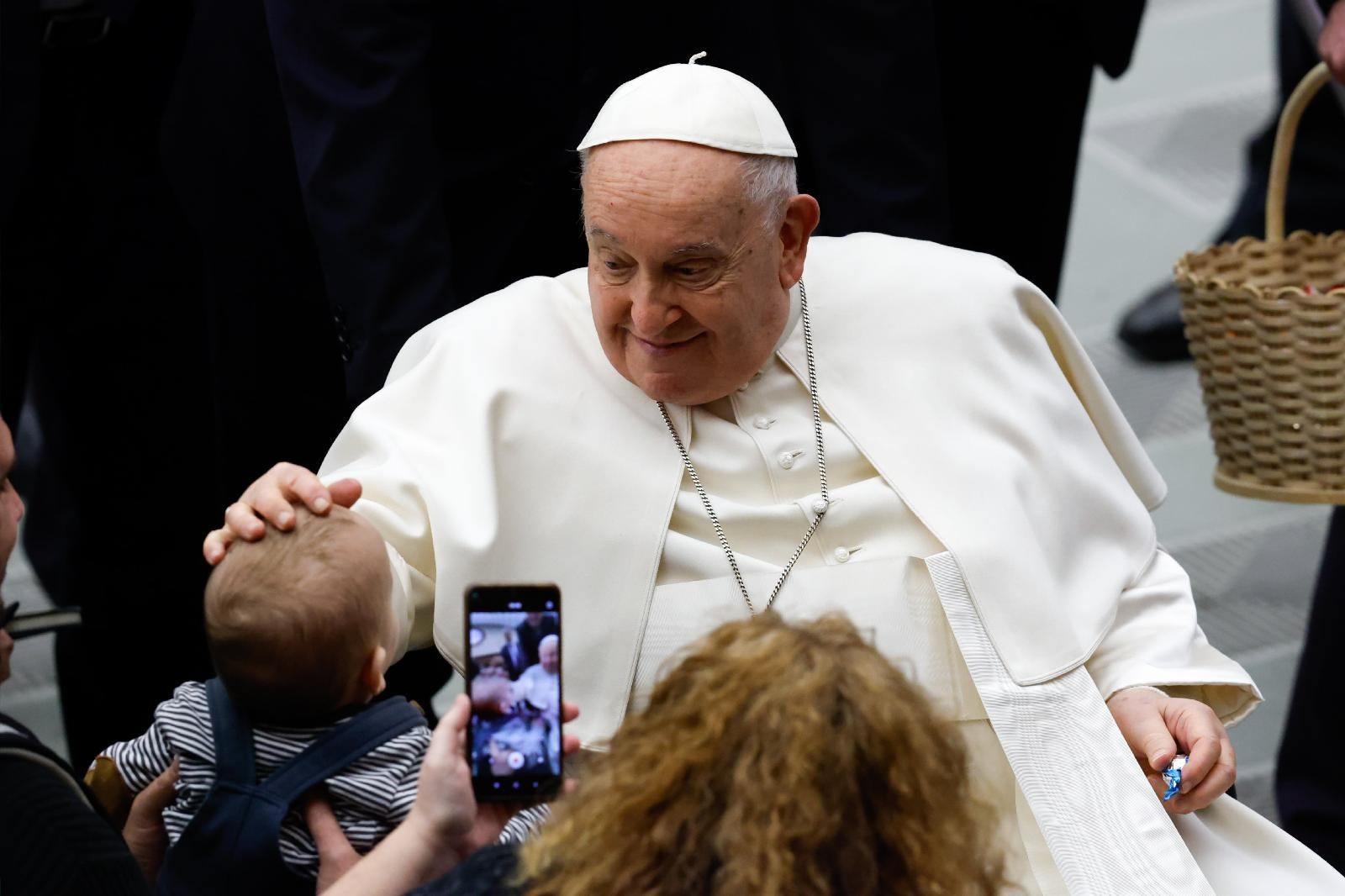
"Therefore, we all need to learn how to forgive" as far as humanly possible, he said. "Wrath is countered by benevolence, openness of heart, meekness and patience."
However, the pope said, "not everything that stems from wrath is mistaken."
"We are not responsible for the onset of wrath, but always for its development," he said.
Sometimes "it is good for anger to be vented in the right way," he said. "Holy indignation exists," especially at an injustice, but this is not wrath.
Jesus felt it several times in his life, but "he never responded to evil with evil," the pope said.
When he entered the temple and drove out the merchants and overturned the tables of the money changers, Jesus "performed a strong and prophetic action, dictated not by wrath, but by zeal for the house of the Lord," he said.
"We need to distinguish the good," which is holy indignation, he said, from the bad, which is wrath, and to pray to correctly govern one's passions, "to educate them so that they turn to the good and not the bad."
The pope also recalled Jan. 31 was the feast of St. John Bosco.
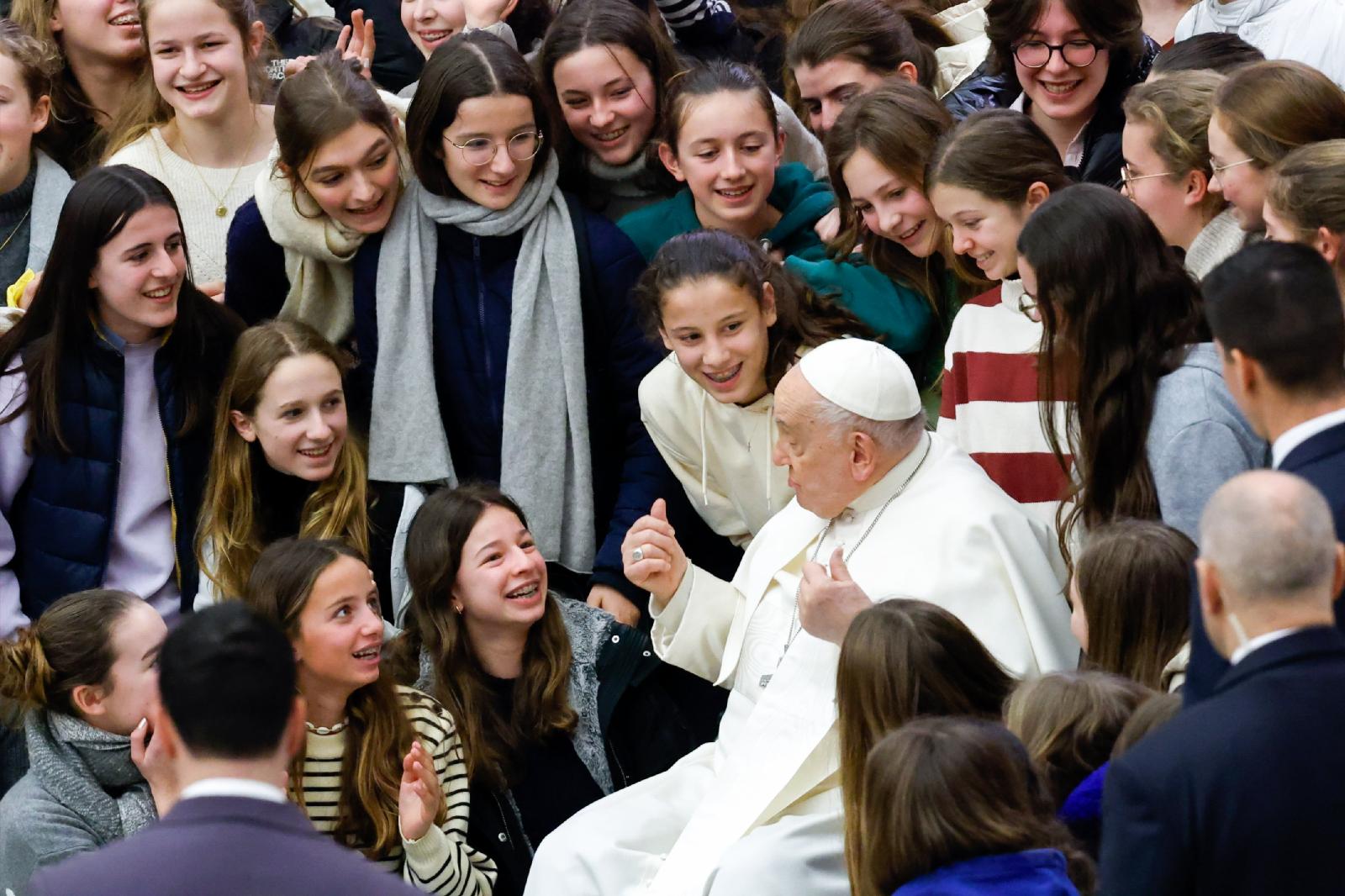
In his greetings to visitors in other languages, the pope highlighted the work of the 19th-century Italian saint, saying he helped many young people in their difficulties and, with his apostolic zeal, brought them to Christ. "Let us also be witnesses to young people that Christ wants to enter our lives to fill them with the joy that only he can give."
He invited people to imitate the saint, "educating young people in the faith and training them in the different sciences and professions, for a better future in which humanity can enjoy peace, brotherhood and tranquility."
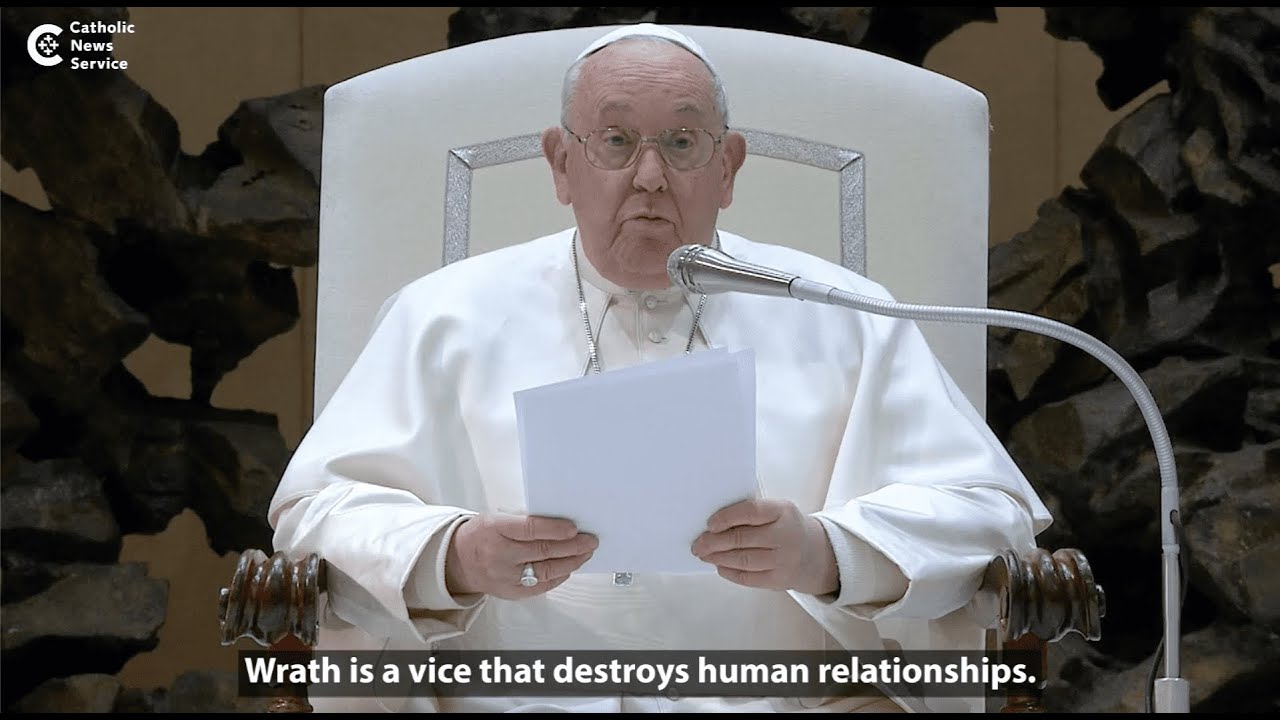
Pope: Forgiving others helps rein in wrath
Pope Francis continued his catechesis series on virtues and vices by discussing wrath.

